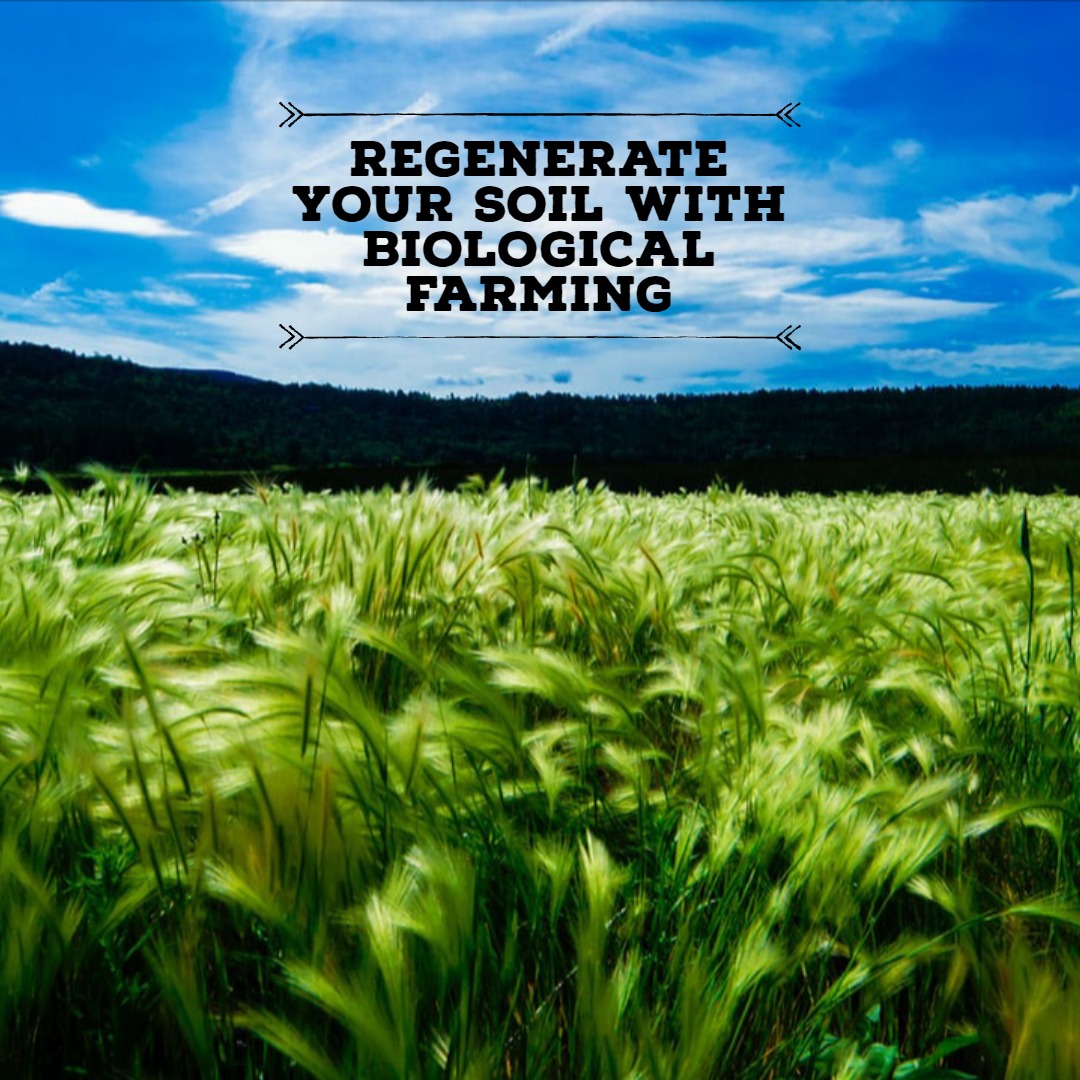Biological Farming, the Basics and How to Improve Yields
Today’s farmers are seeing an increasing need for soil inputs to achieve desired crop yields. Small and medium-scale farms are doing whatever possible to keep up with the agricultural giants. One method available for farms to get ahead is Biological Farming.

What Is Biological Farming?
Farming, whether raising animals or plants, requires the use of biology, so how does biological farming differ? Biological farming should not be confused with organic farming. Biological farming is the use of conventional and organic farming methods side-by-side to cultivate the healthiest possible soil that results in the healthiest possible crops and livestock.
Biological farming seeks to restore the naturally occurring microorganisms and beneficial macro-organisms to the soil including bacteria, fungi, protozoa, and earthworms. Biological farming creates a sustainable soil management system. The microorganisms in a natural ecosystem facilitate soil viability and nutrient availability to crops.
What Are the Benefits to Biological Farming?
- As soil nutrients become more readily accessible to crops, the need for chemical-based fertilizers gets reduced
- When crop inputs such as fertilizers become less necessary to achieve desired crop yields, the pocketbooks of farmers will benefit
- The need for pesticides gets reduced, because crops grown via biological farming tend to resist disease and pests better than crops grown with other farming methods
- Soils dense with beneficial organisms, as with biological farming, contain more carbon which produces crops that resist environmental stresses like drought
- Biological farming can increase the growing season and reduce water input
- The nutrient density in crops grown via biological farming has been shown to be higher than other modern farming methods
- By increasing the beneficial organisms living in the soil, root mass naturally increases, crops become healthier, the soil becomes more conducive to crop growth, inorganic and organic materials become balanced, and a physical structure develops that can absorb and hold water
How Do I Begin Using Biological Farming?
- Rotate crops using best practices
- Diverse plantings for pasture
- Tilling using best practices
- Use of green manure
- Grazing using best practices
- Use of compost
- Reduction of toxic chemicals
- Reduction of soluble nitrogen and potassium
- Balance of soil minerals
- Pro-Soil PS-Foundation
- Pro-Soil PS-Starter Pro
- Pro-Soil Triple 3
- Pro-Soil Top 3 Advanced
- Pro-Soil IPS-100
At Pro-Soil Ag Solutions we have proven that with biological farming, we can regenerate soil to its maximum natural potential. Biological farming not only restores your land to a more natural state, but it also maximizes your crop yields and profits. Pro-Soil Ag Solutions’ products will improve soil health, allowing for the fertilizers you apply to your soil to work more effectively.
Pro-Soil Ag Solutions can help you get your input costs under control. Our products will allow you to gradually decrease your soil inputs, increase your soil energy, and ultimately increase your yield potential. Trust our products to produce softer soil and deeper roots. Contact Pro-Soil Ag Solutions today to learn more about biological farming, soil management, and products that will help you and your farming practices!
